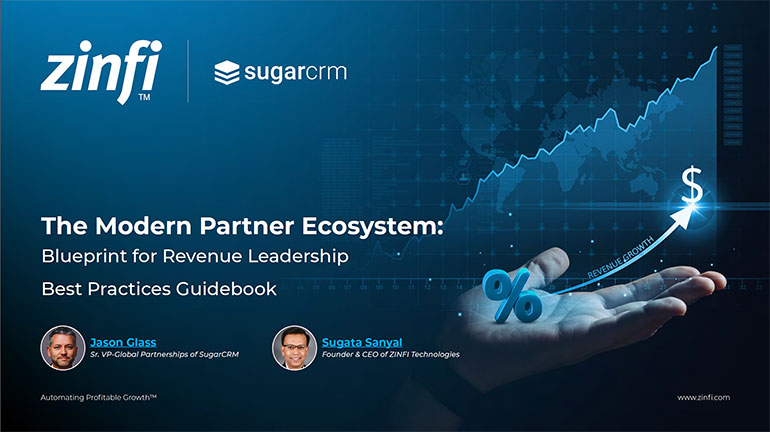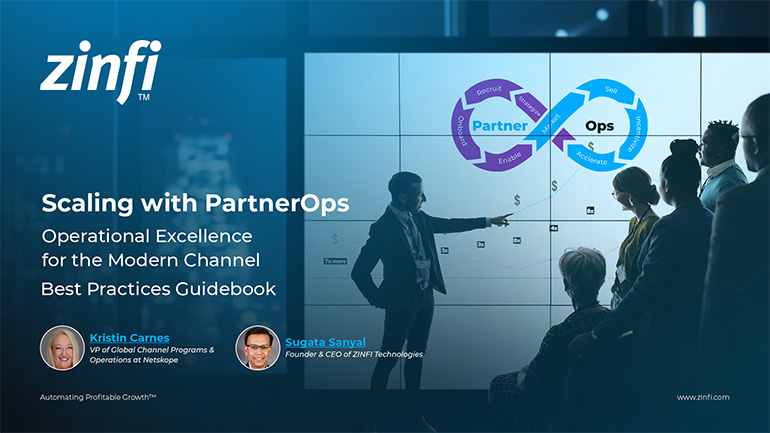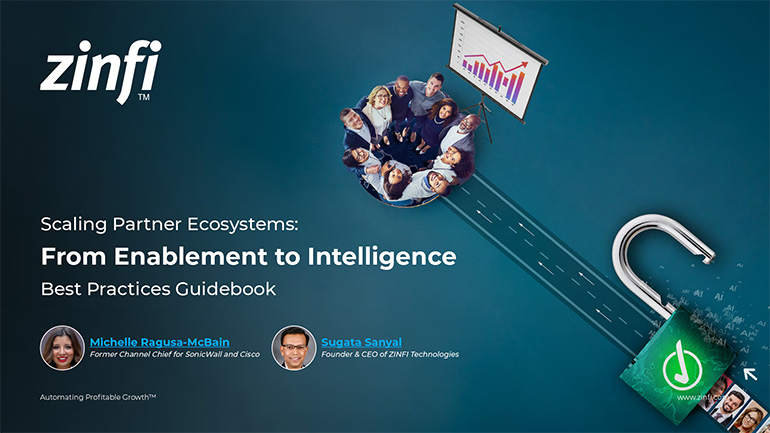Best Practices Articles

Why PRM Is Just a Starting Point
PRM — partner relationship management—focuses primarily on helping organizations selling through the channel to be more productive in managing their relationship with the partner base. However, PRM is just the starting point. There are many other dimensions of channel management that keep channel marketing professionals up at night. That’s what I will cover in this article.
Let’s begin by thinking about how we typically work with channel partners and what partner lifecycle management looks like. The lifecycle begins with a company’s effort to recruit, onboard and engage partners in selling a set of products and solutions. Those three simple words—recruit, onboard and engage—represent tasks that are not at all easy. They are actually quite complex.
However, PRM solutions, including software and services, can make a big difference for vendors and help ensure they perform these three steps the right way. Good PRM software will automate partner recruitment, onboarding and engagement through a logical, step-by-step process. Effective automation not only reduces the cost of running recruitment programs, but also increases partner satisfaction regarding how they do business with a vendor.
We have discussed how PRM can facilitate effective channel management in many other articles, so we will skip that for now. (Please check our blog for best practices articles and more details.) However, I do want to take a moment to focus on aspects of partner relationship management that go beyond traditional PRM software—which, after all, tends to focus on only a few core objectives. For example, most PRM software today tends to rely on providing a dynamic partner portal, along with a set of assets and content that partners can use, followed by lead management and deal registration. A few platforms also offer learning management, and possibly some partner incentives management. But these capabilities are not enough. To bring their channel management into 21st century, it is essential for vendor organizations to focus on three additional core capabilities: enabling partners to market and sell, and providing partners with responsive support.
So, while most PRM software tends to focus narrowly on partner recruitment, onboarding and engagement, and the relevant automation capabilities tied to those steps, it is essential that organizations selling through the channel also pay attention to partner marketing management, partner sales management and partner support.
The primary purpose of partner marketing management is to enable partners to market on their own by giving them a set of preloaded, out-of-the-box campaigns leveraging an integrated SaaS marketing platform. While a PRM platform focuses on engaging partners through business planning, contracts, training and so on, a partner marketing management tool enables partners to drive demand generation on their own by leveraging the vendor’s branded content and campaigns.
The focus for partner sales management is to enable partners to close on more deals, and close more quickly. Partner sales management typically provides a set of content management and sharing capabilities that enable partners to send relevant digital content to prospective buyers, see how prospects are engaging with that content and quickly determine which content is working or not.
In this brief overview, I have suggested that partner relationship management software (PRM) software tends to focus rather narrowly on partner recruitment, onboarding and engagement, and that there are other dimensions to channel marketing—namely, partner lead generation and sales closing—that are just as important. That leaves us with one last step: partner care management.
The focus of partner care management is to provide support to partners in various stages of their engagement with a vendor. This is incredibly important, because it ensures that a vendor organization can streamline interactions with its partners.
I hope this summary helps you understand why PRM is just the starting point for effective channel management. If your organization is serious about building a state-of-the-art channel management infrastructure, then it needs to extend its focus beyond PRM and consider partner marketing management, partner sales management and partner care management as well.
Best Practices Guidebook
 Blueprints for Vertical Success Best Practices
Blueprints for Vertical Success Best PracticesDownload Guide
 The Future of Partner Enablement: From Enablement Gaps to Global Advantage
The Future of Partner Enablement: From Enablement Gaps to Global AdvantageDownload Guide
 Reimagine Sales Development. Build a Smarter Prospecting Engine
Reimagine Sales Development. Build a Smarter Prospecting EngineDownload Guide
 The Zero Trust Imperative: Fortifying Enterprise Security Against AI-Driven Threats
The Zero Trust Imperative: Fortifying Enterprise Security Against AI-Driven ThreatsDownload Guide
 PartnerOps Excellence: The Definitive Guide to Scalable SaaS Ecosystems
PartnerOps Excellence: The Definitive Guide to Scalable SaaS EcosystemsDownload Guide
 The Modern Partner Ecosystem Best Practices
The Modern Partner Ecosystem Best PracticesDownload Guide
 Partner Marketing Reimagined: Strategies for Agile, Insight-Led Growth
Partner Marketing Reimagined: Strategies for Agile, Insight-Led GrowthDownload Guide
 Scaling with PartnerOps Best Pratices
Scaling with PartnerOps Best PraticesDownload Guide
 Leading with Partner Programs Best Pratices
Leading with Partner Programs Best PraticesDownload Guide
 The Partner-First Blueprint: Scaling Trust, Intelligence, and Ecosystem Growth
The Partner-First Blueprint: Scaling Trust, Intelligence, and Ecosystem GrowthDownload Guide
 Unlock Scalable Growth with The Partner Marketing Growth Blueprint
Unlock Scalable Growth with The Partner Marketing Growth BlueprintDownload Guide
 From TikTok to LinkedIn: Social Selling Across the Generational Divide
From TikTok to LinkedIn: Social Selling Across the Generational DivideDownload Guide
 Scaling Partner Ecosystems: From Enablement to Intelligence
Scaling Partner Ecosystems: From Enablement to IntelligenceDownload Guide
 The Ultimate Guide to Partner Marketing Success Best Practices
The Ultimate Guide to Partner Marketing Success Best PracticesDownload Guide
 How to Start and Scale Partner Ecosystems Best Practices
How to Start and Scale Partner Ecosystems Best PracticesDownload Guide
 The Evolution of PartnerOps: Past, Present & Future Best Practices
The Evolution of PartnerOps: Past, Present & Future Best PracticesDownload Guide
 Mastering Channel Sales: Strategies, Best Practices, and Growth Tactics for 2025
Mastering Channel Sales: Strategies, Best Practices, and Growth Tactics for 2025Download Guide







